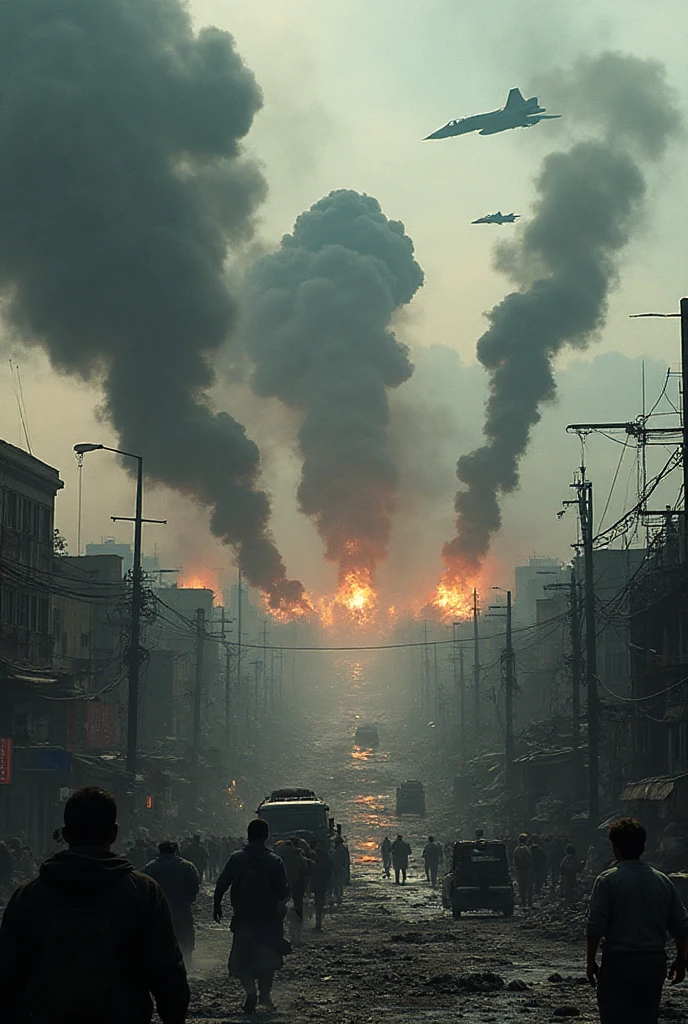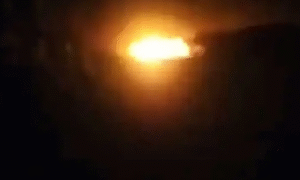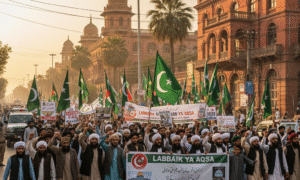Taliban blame Pakistan after explosions in Kabul, amid outreach to India
The attacks come amid rising tensions with Islamabad, which accuses the Taliban of sheltering anti-Pakistan armed groups.
Islamabad, Pakistan
The Taliban has blamed Pakistan for an explosion in Kabul and another in the eastern Afghan province of Paktika on Thursday, amid escalating tensions with this neighbour and shifting allegiances elsewhere in South Asia, which have made Islamabad uneasy.
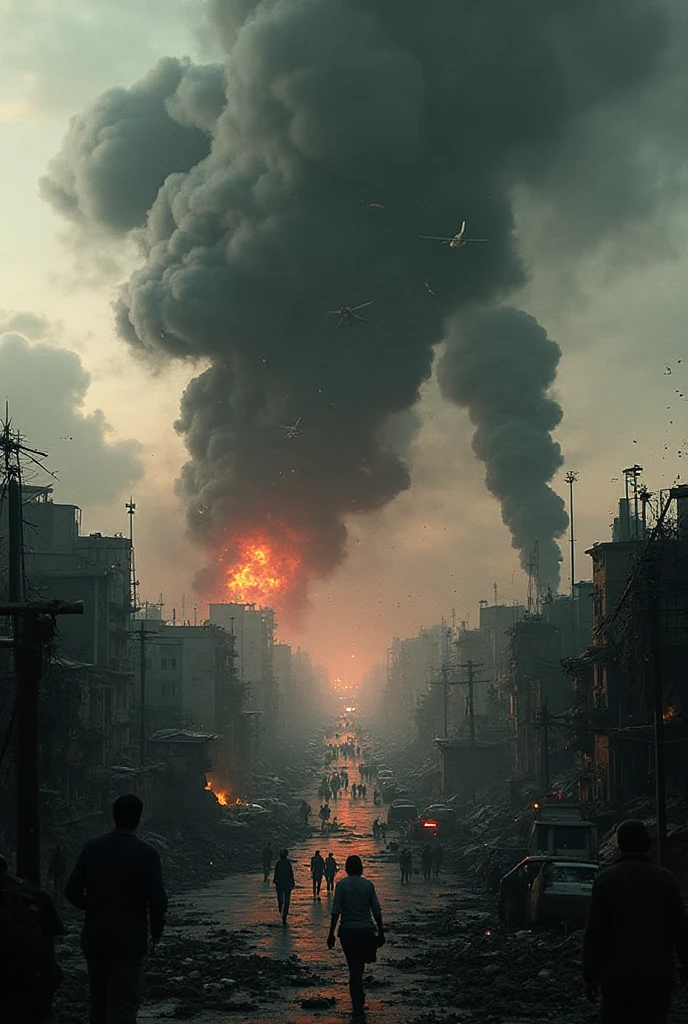
Kabul — Zabihullah Mujahid, spokesperson for the Taliban government, said an explosion shook Kabul on Thursday. He stated that authorities are investigating the cause but described the incident as minor and avoided assigning blame.
Mujahid wrote in Pashto on X: “An explosion occurred inside the city of Kabul. However, don’t worry—everything is fine. Officials are investigating the incident, and so far, no one has died or been harmed.”
On Friday, the Afghan Ministry of Defence also accused Pakistan of carrying out Kabul and Paktika blasts, but refused to provide any further details about it.
The incident comes amid plummeting relations between the two countries, as Afghanistan has had a history of accusations from Pakistan of harboring armed groups, particularly the TTP or Pakistani Taliban, on whose behalf Islamabad has blamed increased attacks on its security forces since the Taliban takeover in August 2021.
These explosions also marked the six-day visit of Amir Khan Muttaqi, the Taliban government’s foreign minister, to India, which has been the first such event since the renewed authority of the Taliban.
Social media users claimed that Pakistan might have played a role in the Kabul explosions, which many believe aimed to kill leaders of Tehrik-e-Taliban Pakistan (TTP), including its chief, Noor Wali Mehsud. Afghan officials said Mehsud remains safe.
During a news conference on Friday, reporters asked Ahmad Sharif, the spokesman for Pakistan’s military, whether the army entered Afghanistan to kill TTP leaders. Sharif refused to confirm or deny the accusation.
Sharif said, “Militants use Afghanistan as a base for operations against Pakistan, and we have proof and evidence of that. We will take all necessary measures to protect the lives and property of the people of Pakistan, and we will continue those efforts.”
Once considered heavily backed by Pakistan, the Afghan Taliban has been trying to reshape its foreign policy by engaging regional powers – including India, which is a former opponent – to ensure its success into getting diplomatic recognition.
Meanwhile, Pakistan has accused India of aiding armed groups operating from its territory, which New Delhi denied.
Fragile thaw between Kabul and Islamabad
2024 turned out to be one of the bloodiest occasions for Pakistan in nearly ten years, with over 2,500 deaths reported due to violent incidents, and the two countries were at work on reorienting their relationship.
Deputy Prime Minister Ishaq Dar went to Afghanistan in April with the higher echelons in charge of both sides having a line of meetings, often under the research and mediated authority of China. That process culminated in enhanced diplomatic relations and a brief cessation of violence during summer.
However, as the Pakistan Institute for Conflict and Security Studies (PICSS) notes, in 2025, violence in the first three quarters shook hands with almost whole 2024 mortality statistics.
According to the US-based Armed Conflict Location & Event Data (ACLED), TTP is currently the only reason behind the increase in attacks from 2021.
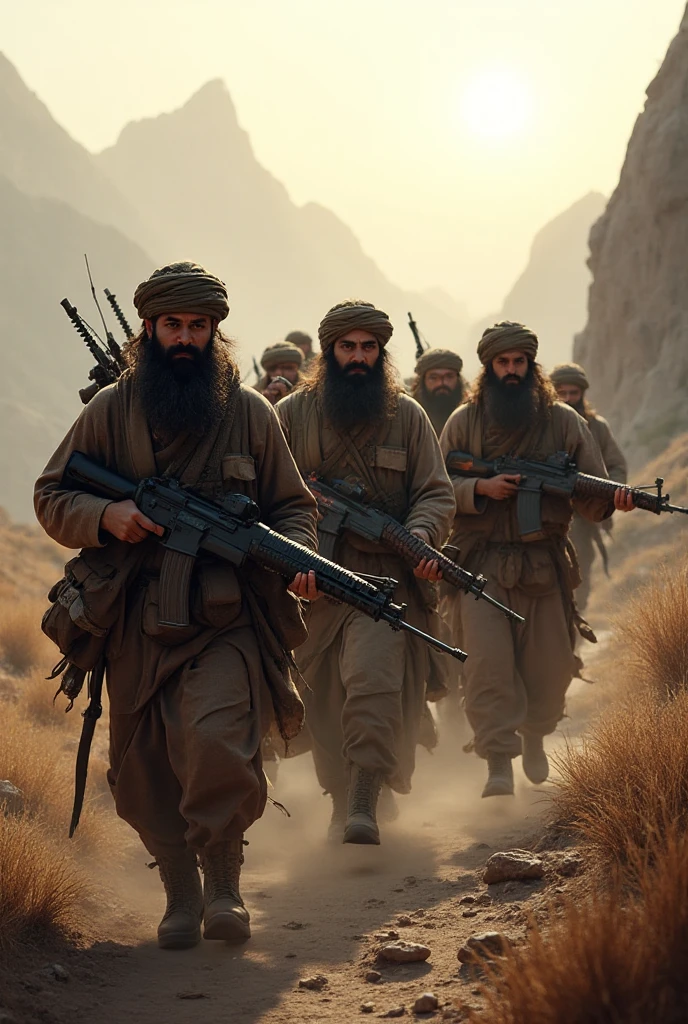
DATA:
“Our data estimates that the TTP has been involved in a minimum of 600 attacks against or clashes with security forces over the last year. Its activity this year in 2025 would already surpass the total in 2024,” a recent report by ACLED elaborated.
In the last days, Pakistan has seen a fresh rise in violence. A series of attacks have mostly targeted armed forces, killing many of them, especially in the northwestern Khyber Pakhtunkhwa province, which shares an extremely long and porous border with Afghanistan. Pakistani military announced Friday that they have killed more than 30 fighters in relation to a recent attack in the tribal district of Orakzai.
In September alone, at least 135 people were killed, and another 173 were injured. After visiting the wounded soldiers following raids leaving behind 19 personnel killed, Prime Minister Shehbaz Sharif delivered a scathing ultimatum to Afghanistan.
“Choose one of the two paths; if in genuine goodwill, sincerity and honesty they want relations with Pakistan, we are ready. But if they want to side with terrorists and support them, then there will be nothing to do with the Afghan interim government,” Sharif proclaimed on September 13.
On Thursday, Defence Minister Khwaja Asif also accused Afghanistan of instigating violence in Pakistan while speaking in parliament.
“How many years of negotiations with the Afghan government? Delegations have come and gone to Kabul. Bloodshed has not stopped in Pakistan. Daily, we have funerals of army men. We are paying with our blood for 60 years of hospitality to 6 million Afghan refugees,” he said.
Pakistan has been hosting millions of Afghan refugees from the 1980s-once after the Soviet invasion, then during the Taliban’s first rule in the mid-1990s, and then most recently in 2021 following their latest takeover once more.
An expulsion campaign instigated by Islamabad around November 2023 has repatriated Afghans to their homeland, although many have resided in Pakistan for decades. The number of returnees may now come close to one million according to the government’s latest figures.
Deepening mistrust
In the recent past, Pakistan and Taliban have also turned their tensions into military confrontations.
Pakistan’s armed forces have carried out air strikes on Afghan territory multiple times in the earlier greatest one happened last December 2024.
Analysts say that if Pakistan is linked with the latest explosions, the outcome might be severe.
Tameem Bahiss, who happens to be a security analyst based in Kabul, remarked that the Taliban have always denied the presence of TTP fighters within their ranks, and any formal acknowledgment of strikes inside the capital could reignite tensions.
“The air strikes by Pakistan on Afghanistan, which we have previously seen, have been of no concrete outcome; they merely sow mistrust and make cooperation against the TTP more difficult. It is further expected that this latest incident will harden positions even further, complicating dialogue and coordination for the future,” he told Al Jazeera.
The most recent assassination-strike in Kabul was in 2022, wherein US drones terminated al-Qaeda leader Ayman al-Zawahiri.
Islamabad-based security analyst Ihsanullah Tipu Mehsud said Pakistan might have launched the attacks as a warning after recent assaults inside its territory.
Mehsud, who co-founded The Khorasan Diary, a security-focused news outlet, believes the explosions show that Pakistan may plan to strike high-value targets across the border.
“Pakistan could hit individuals in Kabul, the political capital, or in Kandahar, the Taliban’s spiritual capital,” Mehsud said. “The Afghan Taliban do nothing to restrain the TTP.”
. Then, if the security situation in Pakistan is dire enough,” he warned.
Bahiss, however, warned that any cross-border strikes could backfire.
“If Pakistan keeps expanding strikes inside Afghanistan, over time, there will be more and more Afghans who support the TTP,” he said. This includes having recruits, funds, and perhaps even some sectors within the Afghan Taliban giving covert support.
He warned that should Pakistan target TTP leaders inside Afghanistan then it would be tantamount to provoking the group to unleash an even greater ferocity of attacks inside Pakistan.
Bahiss said, “If someone targets or kills TTP leaders inside Kabul, the action warns the group that they are not safe even in the capital.”The TTP will most likely tighten its security arrangements, look for areas where it could relocate its leadership, and perhaps respond with even fiercer attacks into Pakistan.”
READ MORE : María Corin Machado – Winner of Nobel Prize 2025

